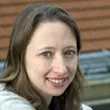David Chapman '82
"I have had the privilege of giving the honors exam in financial economics twice. As I reflect on those experiences, I am struck by the maturity and confidence of the students that I examined. They were all poised and articulate, well prepared, and seemingly sure of where they were going."
-- David Chapman '82, associate professor of finance, The Carroll School of Management, Boston College
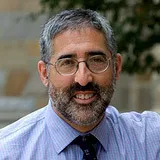
Joan Ehrenfeld
"The students have a level of preparation - in both factual knowledge and ability to reason about this knowledge - which is truly impressive. The Honors students that I had experience with exceeded many of the graduate students in my institution in the sophistication of their knowledge of their subject. The Honors program gives students an in-depth knowledge of a subject area, at an intellectual level that is normally only achieved in graduate programs, as well as the ability to think critically, creatively, and independently about the material. Students graduating with Honors are better qualified to enter graduate programs and excel than any undergraduates I have ever encountered."
-- Joan Ehrenfeld, professor of ecology, Rutgers University
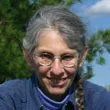
Rachael Evadne Goodhue '93
"The students I examined had mastered the material, and not just the high points of the syllabus. They were committed to thinking about important issues in economic development: the role of agriculture, women and development, and how economic development interacts with the natural environment. Serving as their examiner was an inspiring experience that allowed me to give something back to the Swarthmore Honors community."
-- Rachael Goodhue '93, professor of agricultural and resource economics, UC-Davis
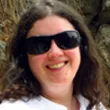
Kathy Hirsh-Pasek
"When faculty members prepare students to be tested by colleagues outside of their institution, they reach beyond their own bank of information, and well beyond the textbook, to groom scholars who are conversant with a wider scientific community. This not only enriches the way a faculty member prepares for a course - always mindful of the broader spectrum in which he or she teaches - but also prepares students for the next steps in their intellectual journey. As a faculty member who evaluates graduate applicants, I seek out Swarthmore Honors students because I know that they did not simply memorize content, they learned to think like first-year graduate students."
-- Kathy Hirsh-Pasek, Stanley and Debra Lefkowitz Professor of Psychology, Temple University
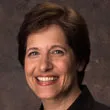
Alexander Huk '96
"Coming back to Swarthmore as an Honors examiner is a different experience altogether. Even a nuts-and-bolts type like myself grows misty-eyed with revisionist nostalgia for the institution and overcome with fatherly fondness for the Swarthmoreans I get to grill. Soft-focus reminiscence aside, I've had one striking experience: these examinees are not good students. They are not students at all. They are great - young, but great - scientists."
-- Alexander Huk '96, associate professor of neurobiology and psychology, UT-Austin
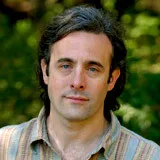
Richard Mansbach '64
"On three occasions, I have had the pleasure of changing roles and returning to Swarthmore as an honors examiner for international politics. Convinced, as are many alumni by my age, that students today have an easier lot than we did, I discovered that, in fact, little had changed. The students remain immensely talented and well prepared."
-- Richard Mansbach '64, professor of political science, Iowa State University
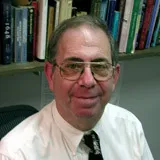
Stephen Maurer '67
"I remind examiners that students will be daunted in the oral because you can ask them anything. So put the students at ease, I suggest, by letting them pick the first thing to discuss. 'Once they are at ease,' I explain, 'you will be able to find out what they know.' I can say this both based on my experience as a student and because I tried just that as an examiner, with success. Most of all, I can tell students: 'You will survive; see, I'm still here.'"
-- Stephen Maurer '67, professor of mathematics, Swarthmore College
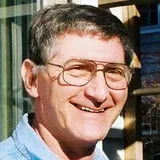
John McCleary
"In mathematics we talk about mathematical maturity in our students. The Honors students that I examined achieved a remarkable level of maturity in the subject, being able to fashion rigorous, correct, and insightful arguments, sometimes on their feet, as well as revealing a deep engagement with the special topics. There is no program like it that I know of. Prospective students ought to know that they can have a deep and personal experience in a subject, guided minimally but appropriately by a caring faculty member, after which they will be examined by experts in the field who will encourage them to bring the best of their learning to bear on interesting problems."
-- John McCleary, professor of mathematics, Vassar College
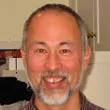
Leonard Nakamura '69
"As a scholar in macroeconomics and financial economics, I was asked to be an outside examiner in Honors in both fields. Setting the exams is an interesting and uniquely rewarding task - one sits in judgment simultaneously on the College curriculum and on a particular set of students. For those of us for whom the Swarthmore Honors Program was a great, formative experience, being able to give something back is deeply satisfying."
-- Leonard Nakamura '69, vice president and economist, Federal Reserve Bank of Philadelphia
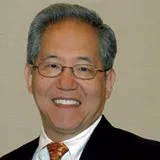
Christina Hull Paxson '82
"The Honors Program set me on the road to becoming an educator and a researcher. Preparing for and taking the honors exams was one of the most intense yet satisfying intellectual experiences I've ever had, and gave me confidence that my decision to pursue a graduate degree in economics was not a mistake."
-- Christina Paxson '82, president, Brown University
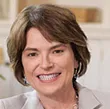
Thomas Roby '85
"In math seminars we learned to read texts on our own, solve problems together, and seek alternate sources. Steve Maurer's combinatorics seminar challenged us further to read individual papers and to present the material. This preparation for graduate school and math research was invaluable."
-- Thomas Roby '85, associate professor of mathematics, University of Connecticut
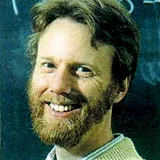
Tara Zahra '98
"History got under my skin through the Honors Program - it was incredibly exciting. I started to think of myself as someone who might be able to contribute something to the field eventually."
-- Tara Zahra '98, associate professor of East European history, University of Chicago
